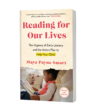First, a warning: Don’t judge “Wonder Women: Sex, Power and the Quest for Perfection” by its cover. The illustration and the title give the wrong impression.
The cover (designed by a man, incidentally) features a glorified stock photo of a white woman in stilettos, button-down shirt and trousers standing on her head while peering at a laptop. Outsized blood-colored boxes imprison white text stamped across the poor woman’s body.
Ugh.
Written by Debora Spar, a mother of three and the president of Barnard College, the book is related to sex, power and the quest for perfection. But, more interestingly, it’s preoccupied with the 101 ways that women set themselves up for perpetual disappointment, anxiety and dissatisfaction, by pursuing a perfection mirage.
The sex/power business reads like a primetime exposé and comes across as much less astute, inspired and upbeat than the book itself.
(Steps off soapbox.)
A Sweeping Account
Like the women it examines, “Wonder Women” is probably trying to do too much. Bloated with research and anecdotes, it is part memoir, part cultural history, part survey of gender research and part self-help—all with an upper-middle-class-white-woman bent.
Read it anyway.
In each chapter, Spar examines the siren song of perfectionism in a different facet of women’s lives—childhood, body image, love, sex, wifedom, motherhood, work and aging. She discusses the origin of off-the-chart expectations in each area, highlights the contradictions inherent in the pursuit of perfection and foreshadows its demise. We cannot hear this enough.
Taken separately, there are few surprises in Spar’s notes on the sexual revolution, evolutionary biology, eating disorders, contraception, childbirth, parenthood, relationships, glass ceilings and the beauty industry.
The book’s real achievement is in range, not revelation. It’s the accumulation of these doomed perfection quests from girlhood to death that astounds. Spar’s unrelenting variations on the theme of feminism vs. perfectionism over 300 pages make an impact.
This Book’s For You
I recommend this book for any woman who has ever piled on too many responsibilities and then buckled under the weight. And what woman hasn’t?
Read this book because of Spar’s voice. This accomplished woman (who might be suspected of having it all) generously illustrates the book’s arguments with examples culled from her own life. She comes across not as a distant academic, but as a real (if unusually curious and well-read) woman in the trenches, figuring life out as she goes.
Her personal accounts—like the time she crashed her minivan into a telephone pole racing to her daughter’s ballet recital—ground the book in a way that the raft of research alone could not. And her witty, opinionated tone makes otherwise dense material lively and palatable for readers.
Read this book because of its examples of real women making conscious trade-offs to pursue their big dreams. As I wrote in a previous post on not-to-do lists, women would benefit greatly from making more deliberate choices about what we’re going to do (and not do) in our daily lives. It’s the antidote to living by default, aspiring to unrealistic ends and disappointing ourselves.
Read this book for its cogent discussion of what the heck has happened to feminism, the institution of marriage, the workplace, standards of beauty and other pillars of women’s lives over the last 50 years. Agree or disagree with the specifics of Spar’s analysis, but appreciate her sustained exploration of why even privileged women feel unfulfilled and stuck despite unprecedented opportunity.
Resist the Myth
Read “Wonder Women” once for its sweeping review and then refer back to it as needed. Let it fortify you against the pressure to do more and more, better and better.
Feeling unsettled after reading “news” like this un-ironic account of the 17 creams and oils that comprise 72-year-old Martha Stewart’s beauty regimen from the New York Times? See Chapter Nine: Memories of My Waist. It’ll remind you that aging is inevitable, the media is largely inept at embracing it and women can (and must) make their own choices in response.
Thinking about adding yet another project, responsibility or expectation to your life? Refer to Chapter 10, where Spar writes, “[Women] need to realize that having it all means giving something up—choosing which piece of the perfect picture to relinquish, or rework, or delay. Having choices means making them, and then figuring out how to make them work.”
Go forth and work it!
P.S.
I just read that an updated version of “Lean In” is due out in April. Focused on recent college graduates, it will include new advice on finding a first job and listening to your inner voice. I hope “Wonder Women” gets a second printing with a better cover!


